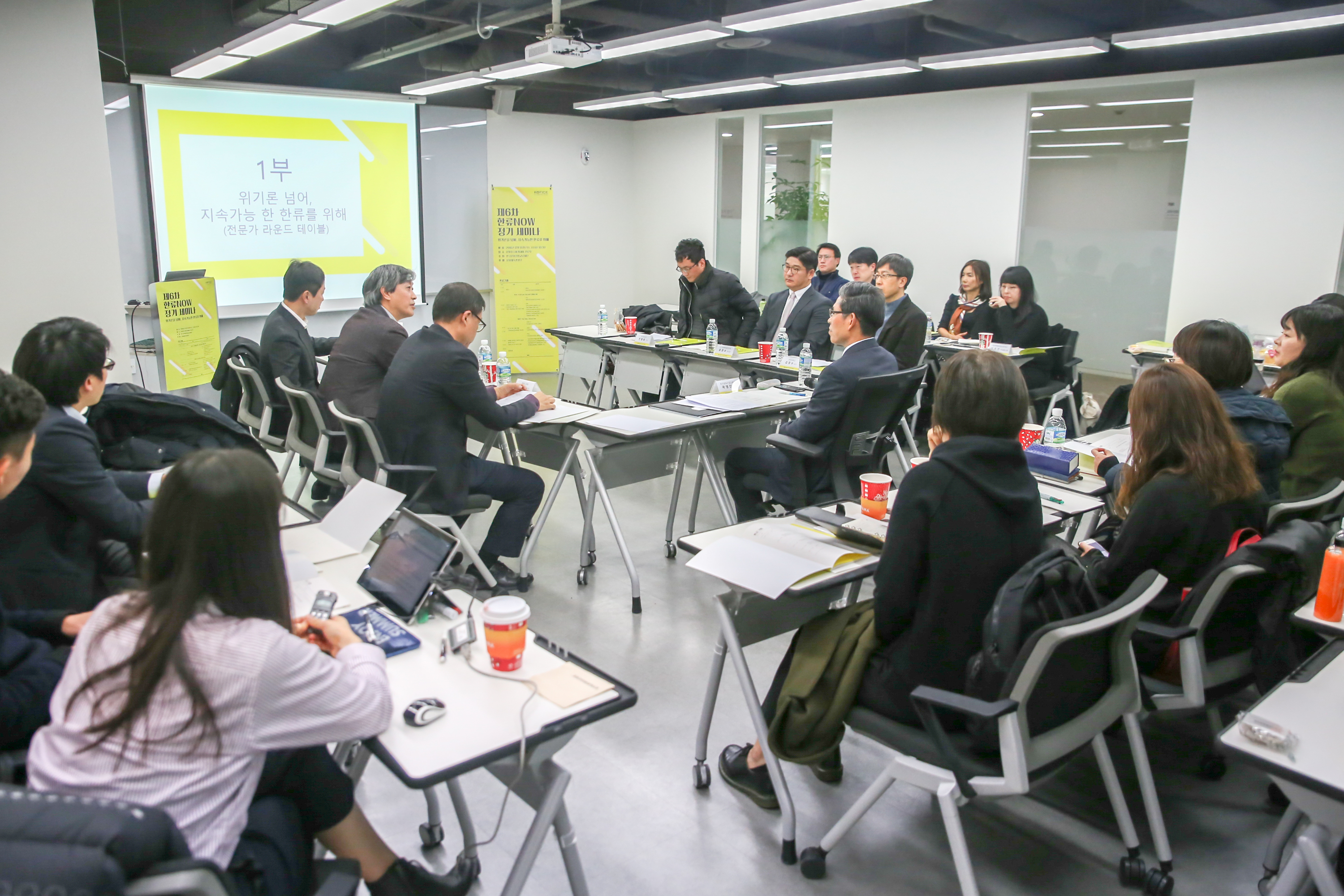| Title | The 6th 'Hanllyu Now' Seminar | ||||
|---|---|---|---|---|---|
| No | Inquiry | 1878 | Date | 2016/12/15 | |
Korean Wave experts gathered at the 6th Hallyu Now Seminar on December, 15th, 2016 to discuss ways to sustainably develop businesses related to the Korean Wave as they are having hardships due to domestic and foreign issues.

Hosted by the Korea Foundation for International Culture Exchange (KOFICE) and funded by the Ministry of Culture, the seminar was designed to explore the direction that the Korean Wave needs to follow. It ultimately aims to publish the discussions of the seminar in a series, <2016 Korean Wave White Paper >.
To check the domestic perception of the Korean Wave before the discussion, Nam Sanghyun, Research Team Leader of the Foundation presented the result of <2016 Public Perception on Korean Wave>. According to the research done by the Foundation and <Realmeter>, the majority of the public is concerned that political and social issues such as the Choi Soon Sil incident and deployment of THAAD are negatively affecting the culture industry.
To Sustainably Develop Korean Wave
During the first part of the seminar, Kim Jung-soo, professor of Public Administration at Hanyang University, Shim Sang-min, professor of Media Communication at Sungshin Women's University, Ahn Seok-jun president of FNC Add Culture, Yoon Hyunbo, president of Signal Entertainment, Seo Byung-ki, reporter at Herald Economist, and Jeon Hyung Hwa, reporter at Money Today, participated in the discussion. Kwang Young Jin, the chairman of KOFICE, participated as the senior member to discuss ways to overcome challenges that the Korean Wave is facing.
By going over the effects of political and diplomatic issues on businesses related to the Korean Wave, participants had time to think of the relationship between the challenges that Korean Wave needs to overcome and the branding of the Korean Wave. Ahn Seok-jun and Yoon Hyunbo explained how the Chinese policy on unofficially banning the Korean Wave is negatively affecting business by giving current examples. Seo Byung-ki and Jeon Hyung Hwa stated that the media’s tendency to discuss Korean Wave with a nationalistic view can adversely limit the spread of the Korean Wave. Kim Jung-soo and Shim Sang-min stated the importance of the unconstrained spread of the Korean Wave in bigger markets by moving on from a passive and exclusive Korean Wave.
Post Korean Wave: Beyond Asia
Which direction should the Post Korean Wave follow? Until now, the Korean Wave developed mostly in Asia, where the geographical and culture gaps are not huge. Thus, the Korean Wave is vulnerable to situation changes in Asia. In the second part of the seminar, participants discussed ways to overcome these vulnerabilities by diversifying the market to North America and Europe.
In the second part of the seminar, Park Jiyoon, L.A. correspondent, Ji Youngho, France correspondent, and Lee Youjin, Germany correspondent, explained the current status of the Korean Wave in Europe and North America. Then, to propose a strategy for the Post Korean Wave, Kim Yunji, a researcher at export-import bank, Min Ji Eun, a professor at Sungkyunkwan University's Graduate School of Cultural Convergence, Lee Man-hee, professor at Kyunghee University's International division, and Uh Il Kyung, director of Legendary Entertainment, gathered and had a discussion.
During the session, many issues were discussed, such as the current limitations of the Korean Wave. Much of the discussion was based on the concern that the Korean Wave is approaching European and North American market in the same way as it did in Asia. Participants emphasized the importance of market analysis, which includes not only the policy and culture industry of the target country, but also historical, social, and cultural characteristics. This means the business model in Europe and North America can only be sustainable when the Korean Wave’s social and industry roles are clearly defined. The content discussed during the session will be published as <Resource book for trend of Korean Wave in North America and Europe>.
The Hallyu Now Seminar has been analyzing Korean Wave-related issues from diverse perspectives and provided insights. Kwak Young Jin, director of KOFICE, said that this regular seminar can help people in the Korean Wave business to build their networks, and he believes Hallyu Now Seminar can become the representative Korean Wave Seminar. By sharing, discussing, and predicting the Korean Wave market, Kwak Young Jin thinks that the seminar can provide a guideline for policymaking and create new opportunities.

